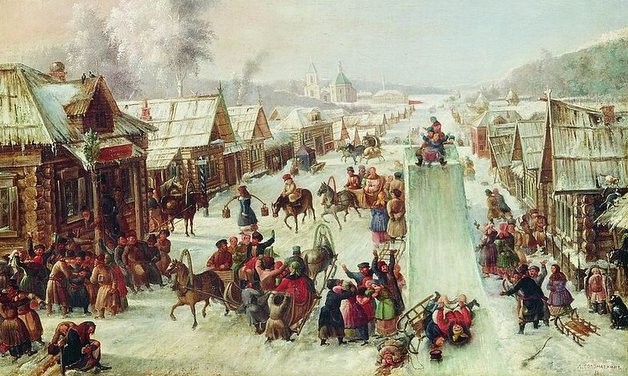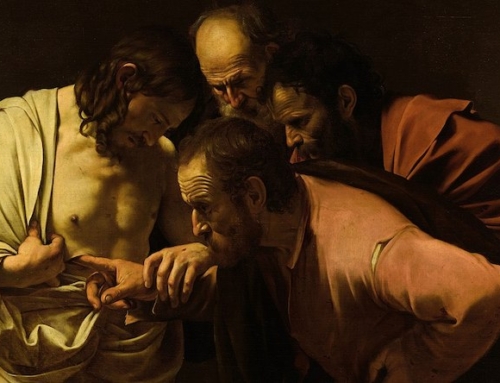Mardi Gras, Shrovetide, Carnival, Fat Tuesday, Shrove Tuesday – the names for today, the day before Ash Wednesday are many and varied, but they all say essentially the same thing. It is a time of great festivity and celebration before the somber season of Lent commences. Such celebrations are also common among the Orthodox and Eastern Rite Catholics. By a quirk in the calendars, Easter falls on the same day this year for both the East and the West, which means that our Eastern brethren are actually celebrating the second day of Lent today. However, last week, they held their own festivities.
The last week before Lent is called “Maslenitsa” in Russian, and in imperial Russia it was a time of great celebration. Maslenitsa marked the close of the winter balls in the major cities and was a time of outdoor revelry with sleigh rides, snowball fights, and the visiting of family and friends. Snow jumps were often constructed in St. Petersburg. Maslenitsa was and still is most famous for its pancakes, from which the feast gets its name.
These festivities are designed as a celebration, but they serve a practical purpose as well in preparation for Lent. In the Orthodox faith both meat and dairy products are not permitted throughout the entire season of Lent, so finishing off all those meats and rich foods before the season starts is also a matter of prudence. The Orthodox take a gradual approach to abstinence with meat being forbidden the week before Lent begins. Hence, the famous pancakes that give Maslenitsa its name are some of the rich fare still permitted in the final week leading up to “Great Lent.”
Traditionally Mardi Gras and the time shortly before Lent were not simply about celebration and gluttony. Shrovetide takes its name and its origins from individuals having their sins “shriven” in confession on the days leading up to Lent. No doubt, the need for confession came in part from the excesses of the celebrations themselves. In Russia the last day of Maslenitsa, known as “Forgiveness Sunday” (a name for this Sunday common to the Orthodox tradition), is a day on which all the people ask forgiveness of each other.
These steps towards the Lenten Journey are ones of celebration, but also of cleaning out and ultimately freeing oneself up to walk more closely with the Lord. One of the purposes of Lent is to help remove some of the deeper habits, distractions, and sins that cause us to turn away from God – things deeper than the occasional bit of gluttony and partying to excess. It is in part a journey into the desert that accompanies Christ during the 40 days that followed his baptism. In the desert, one is removed from the comfortable surroundings, parties, and traditional pillars of support. In the desert of Lent it is easier to see temptation for what it is, no longer nicely gilded, but something against which one needs to fight. Observing Shrovetide properly can prepare us to take up the traditional Lenten practices of prayer, fasting, and almsgiving, which are intended to help us follow Christ more faithfully.
So let us enjoy this day, and as we commence our Lenten Journey, let us resolve to strip away some of the vices that separate us from Jesus and thus to walk more closely with Him.
Our Lady, Refuge of Sinners, pray for us.
✠
Image: Leonid Solomatkine, Maslenitsa







